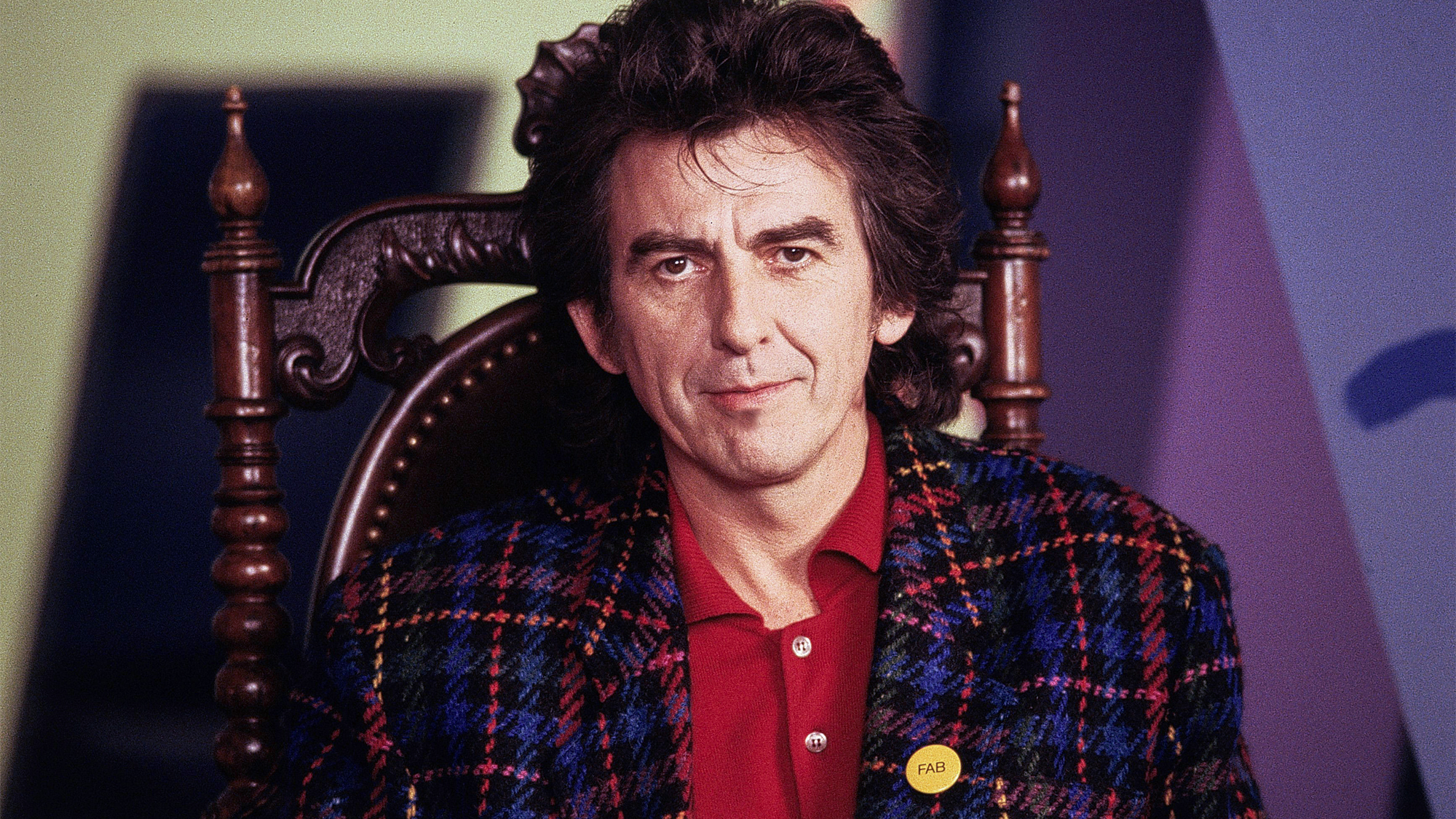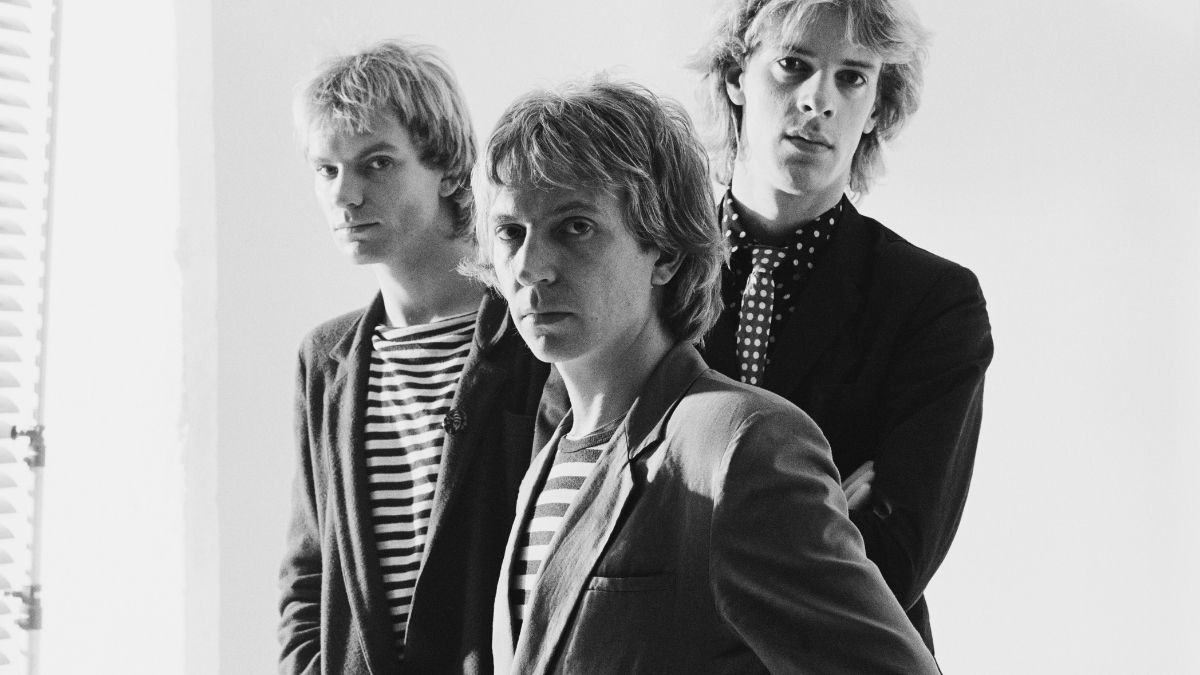“He’s a bit overpowering at times.” John Lennon, Paul McCartney or Ringo Starr? George Harrison said he would have formed a new group with just one Beatle
Although his solo career was going strong, the Quiet Beatle entertained the possibility of forming a new band with one of his former Fabs

As the Beatles’ 1995 Anthology docu-series returns to TV this week with a new, ninth episode, we can all relive the group’s breathtaking rise and disheartening fall as they broke up in late 1969.
While several of the band members worked together in their solo years — David Bowie even claimed he, John Lennon and Paul McCartney discussed forming a group — the quartet never re-entered the studio or performed again after 1969.
However, George Harrison hadn’t completely soured on his bandmates. As he revealed in a 1974 interview, he was open to forming a new band with one of them.
The Beatles' breakup came at an unfortunate time for Harrison. After years of being stifled by the Lennon-McCartney songwriting partnership, he was flourishing as a writer. Songs like “Something,” “Here Comes the Sun” and “Old Brown Shoe” demonstrated he could compose tunes as good as his bandmates, while his newfound talents as a guitarist showed him to be a singular stylist.
The release of All Things Must Pass, his ambitious and expansive 1970 solo album, was vindication for the years his talents were ignored. The record was the most successful of any former Beatles' album that year, buoyed by the singles “My Sweet Lord” and “What Is Life.”
Remarkably, Harrison hadn't soured completely on the Beatles. He revealed in a 1974 press conference that, while a reunion was a fantasy, he was open to forming a group with one of his former bandmates. At the time of the presser, Harrison was launching the tour for his solo album Dark Horse, with a band that included organist Billy Preston, bassist Willie Weeks, drummer Andy Newmark and a young Robben Ford.
“It’s all a fantasy, the idea of putting the Beatles back together again,” he said, as recounted in the book George Harrison on George Harrison: Interviews and Encounters. “If we ever do that, the reason will be that we are all broke. I’d rather have Willie Weeks on bass than Paul McCartney. That’s the truth, with all respect to Paul.
All the latest guitar news, interviews, lessons, reviews, deals and more, direct to your inbox!
“Paul is a fine bass player,” he admitted, “but he’s a bit overpowering at times.”
Elsewhere in the press conference, Harrison expressed fondness for drummer Ringo Starr, calling him a drummer with “the best backbeat I’ve ever heard.”
But in the end, it was Lennon whom he held in the highest regard.
“John’s gone through all of his scene, but he’s like me, he’s come back around,” Harrison said. “To tell the truth, I’d join a band with John Lennon any day, but I couldn’t join a band with Paul McCartney. But it’s nothing personal. It’s from a musical point of view.”
Harrison may have also remembered Lennon's generosity in a September 1969 meeting, where he suggested future Beatles albums allow a more equal share of songs for each, and said he regretted not giving Harrison and Starr the lucrative B-sides to Beatles singles so that they might have greater exposure and make more money. Lennon quit the band some two weeks later, making his proposal moot.
The guitarist had already worked with Lennon on the latter's 1971 solo album, Imagine, where he contributed lead and slide guitar work across a number of tracks. He also played Dobro on "Crippled Inside," demonstrating the value he brought to the proceedings.
Aside from his work in the Traveling Wilburys, Harrison plowed on as a solo artist until his death in 2001.
In related news, Harrison pal and gypsy jazz guitarist Robin Nolan has recorded a new tribute album to his late friend, made at Harrison’s Friar Park mansion with some of his most prestigious guitars.
The Beatles Anthology begins streaming with Episodes 1–3 on Wednesday, November 26 on Disney+, followed by Episodes 4–6 on Thursday, November 27 and Episodes 7–9 on Friday, November 28.
A freelance writer with a penchant for music that gets weird, Phil is a regular contributor to Prog, Guitar World, and Total Guitar magazines and is especially keen on shining a light on unknown artists. Outside of the journalism realm, you can find him writing angular riffs in progressive metal band, Prognosis, in which he slings an 8-string Strandberg Boden Original, churning that low string through a variety of tunings. He's also a published author and is currently penning his debut novel which chucks fantasy, mythology and humanity into a great big melting pot.

